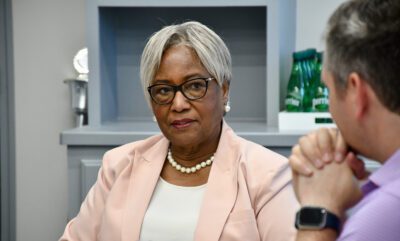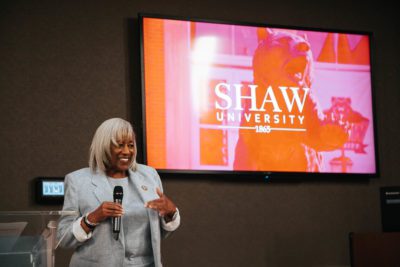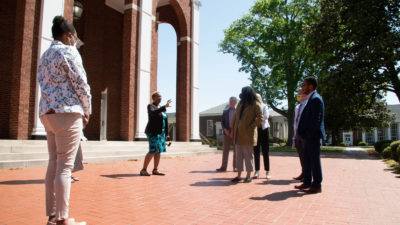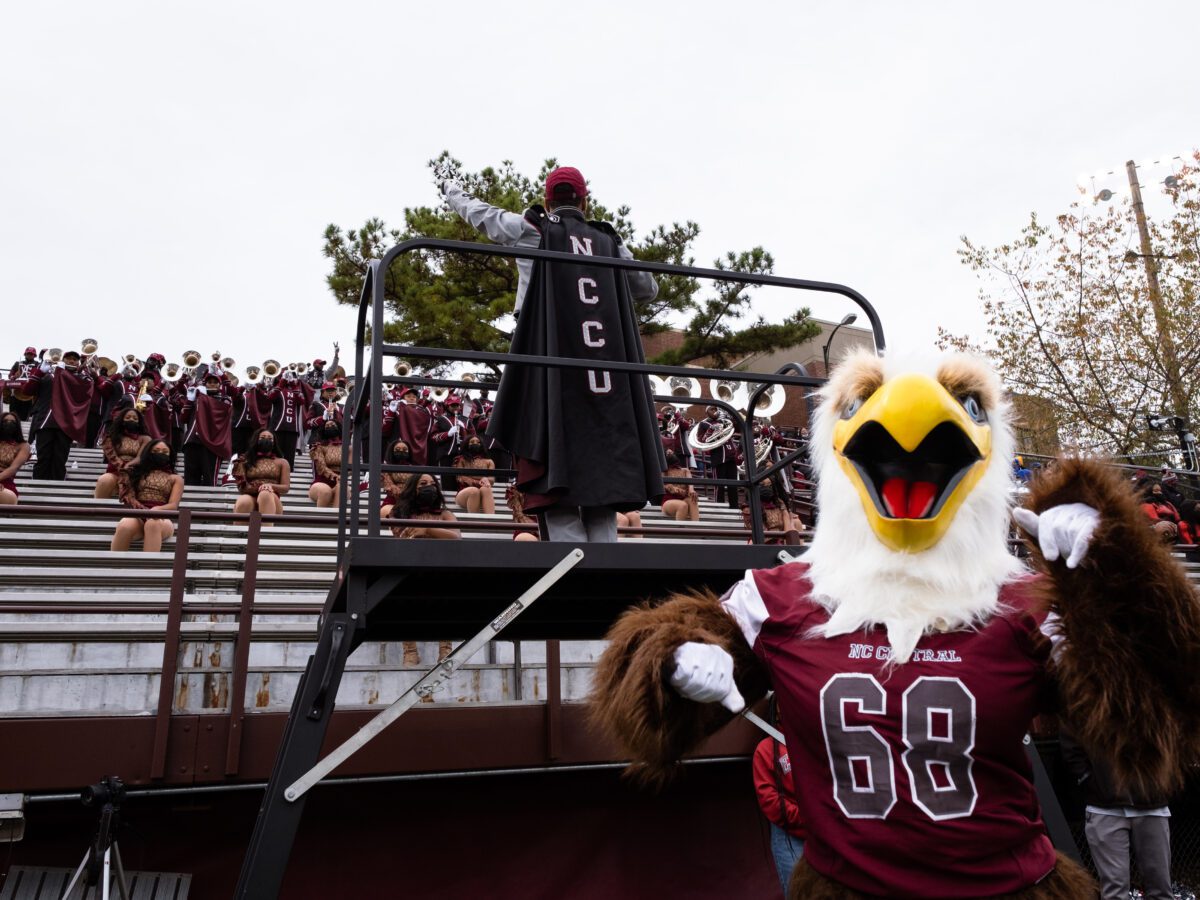
|
|
North Carolina Central University (NCCU) was established in 1910 as the National Religious Training School and Chautauqua for the Colored Race. It was created as a response to the need for higher education institutions for African Americans in the South.
James E. Shepard was a prominent African American educator and civil rights activist who founded N.C. Central University in 1910. Shepard’s vision for the school was to provide a comprehensive education that would empower African Americans to become leaders in their communities.
Initially, the school functioned as a Bible training institute and provided vocational training to the students. In 1925, it was renamed the Durham State Normal School, offering degree programs in education and liberal arts.
The institution reached university status in 1969 and was renamed North Carolina Central University. It is now a public historically Black college and university (HBCU) and one of the 17 institutions within the University of North Carolina System.

“So NCCU is here, not just as an HBCU — that we are,” Chancellor Dr. Johnson O. Akinleye said, “we are much more than that.”
Commitment to diversity and excellence in education
NCCU has over 8,200 undergraduate and graduate students, who come from all walks of life and backgrounds. The university prides itself on its commitment to excellence, access, and equity, and it aims to provide a supportive and nurturing environment for students to learn, grow, and succeed.
“We also wanted to create an environmental campus where our students can be engaged, regardless of who they are,” Akinleye said.
With a 75% African-American student population, NCCU boasts a diverse student body that also includes 10% white, 6% Hispanic, 3% Asian, and 6% students from other ethnic backgrounds. Akinyele shared that the goal was not only to establish an academic institution, but also to develop a campus that nurtures an environmental and inclusive community.

To support this vision, university leadership built a student center where all students, regardless of ethnic background or social status, can participate in a variety of student groups and programs. These groups range from LGBTQ+, Asian, Hispanic, and rural students, to support groups for women and men.
“When you come to Central, you’re bound to meet people who you never really thought you’d meet,” former SGA president Devin Freeman said.
The student center offers engagement opportunities that promote students’ social, emotional, and physical well-being, and has a commitment to continuously meet the evolving needs of their diverse student body.
Building leaders through experiential learning
One of the unique features of NCCU is its emphasis on experiential learning and student engagement. The university offers a variety of opportunities for students to get involved in research, internships, community service, leadership development, and other activities that enhance their educational and career prospects.
These experiences not only help students build their skills and knowledge, but also prepare them to become leaders and change-makers in their fields and communities.
“More than anything, when we graduate, we’re supposed to be social leaders of change,” Freeman said. “So being able to really be around the people that have the same aspirations for change really changes your imagination, and also just sharpens your own skills and your own assets to be better.”
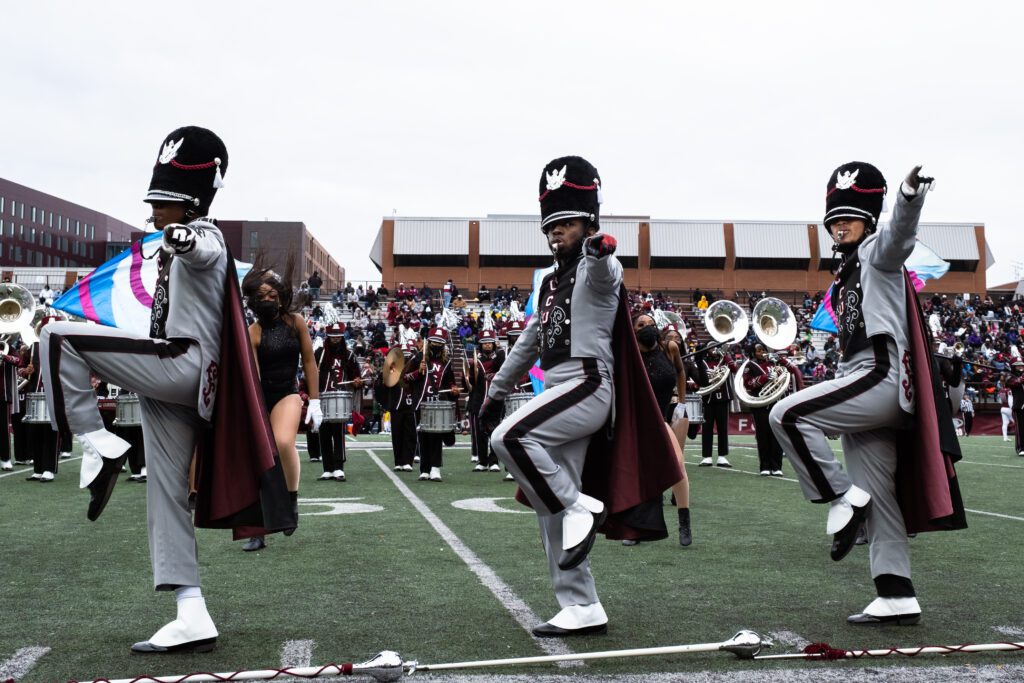
The Eagle Promise
The Eagle Promise, launched in August 2017, is a set of four outcomes NCCU promises to students upon graduation. These outcomes aim to provide students with the necessary skills and knowledge to pursue a successful future beyond their education:
- “All students who follow the suggested degree pathway will earn their bachelor’s degree in four years.”
- “We will provide students with opportunities during their time at NC Central to engage with people and programs both national and international in scope, including study abroad and international exchange opportunities.”
- “We will require all students to hone their leadership skills through initiatives in the classroom, co-curricular activities, project-based learning, and educational service projects and with our partners in business and government.”
- “NCCU prepares students who are job-ready for employment in their field of study or equally well qualified to proceed to graduate or professional school upon graduation.”
“It is imperative that we ensure our students graduate from university, as obtaining a college degree can ultimately lead to much greater earnings for them. This is why we must prioritize our efforts to bring students into the universities and support them throughout their academic journey,” Provost Dr. David H Jackson Jr. said.
Creating the workforce of tomorrow
One area where NCCU stands out is in the workforce development programs it offers to students. These programs are designed to equip students with the skills and knowledge they need to excel in today’s society.
“In the last five years, we’ve introduced more than 10 new degree programs, from clinical research, to cybersecurity, information technology, and so on,” Akinyele said, “because we believe that these are the programs that will create the workforce of tomorrow and bring more students towards expansion.”
NCCU’s workforce development programs also focus on developing students’ soft skills, such as communication, teamwork, and problem-solving, which are essential in any career. The university offers career counseling and coaching services to help students identify their strengths, interests, and career goals. The faculty and staff work closely with students to provide them with personalized guidance and support throughout their academic and professional journey.
NCCU’s enduring legacy
As N.C. Central University continues to expand, it remains firmly rooted in its purpose of providing access and excellence in education for all students.
“We want to move from that classification to Research One. In order for us to move to Research One, we need to have more doctoral programs,” Akinyele said.
According to Akinyele, there is currently only one PhD program, in integrative biosciences, but there is a need for more. To address this, the university is working on developing two or three additional doctoral programs that will support their research efforts.
From its commitment to diversity and inclusion, to its emphasis on experiential learning and leadership development, NCCU is preparing students for success in their careers and community leadership roles. The Eagle Promise embodies this commitment, providing students with the skills and knowledge necessary to thrive in the workforce and make a positive impact on society.
With its rich history, strong academic programs, and dedicated faculty and staff, NCCU remains a beacon of hope and opportunity for students of all backgrounds.



